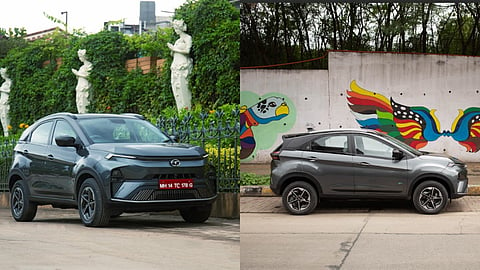
- HOMEGROWN WORLD
- #HGCREATORS
- #HGEXPLORE
- #HGVOICES
- #HGSHOP
- CAREERS
- ABOUT US
- CONTACT US

If you’ve read Homegrown for a while, it’s abundantly clear that we’re not an auto magazine in any way shape or form. Our stories cover art, culture, identity, creators, music, food and technology, and the intersection of all of this with the world that we live in. But vehicles and cars are very much a part of modern human civilization and have in many ways transcended their humble beginnings.
Cars are no longer a means to just get from point A to point B quickly and efficiently. Vehicles have become extensions of our own identities and personalities. They reflect our mindsets, our personal styles and choices and even the cultural fabric in which they exist. Thanks to a combination of marketing as well as creative storytelling through books, television and cinema, they’ve been elevated to being almost larger-than-life indicators of societal appeal.
From hobbyists to aficionados to everyday drivers, there’s a clear pop-cultural reverence for vehicles across the world. Everyone wants to be that person in a fast car; a luxurious car; a futuristic car; a badass car. For many, vehicles are how you craft your identity.
Tata Motor’s new Nexon.ev is an electronic vehicle that appears to understand this reverence. Their latest effort is an amalgamation of technical expertise, adaptive design thinking and a keen insight into what the average Indian automobile consumer wants from a vehicle. They’ve crafted a vehicle that truly is the sum of all of its parts; combining intuitive tech, a simple, yet refined driving experience, and some very welcome ergonomic quality-of-life enhancements that go a very long way towards ensuring that every drive is buttery smooth.
On an almost six-hour-long test drive, a colleague and I put the Nexon through its paces; taking it across the somewhat chaotic streets of Pune on a particularly rainy Sunday morning. Neither of us are who you’d describe as ‘car people’. For us, cars are very much a means to an end and a way to get around that. Beyond that, it’s very much all Greek to us.
To add to this, I’d never driven an EV before and was ever so slightly worried about embarrassing myself amidst all the technicians, engineers and senior automobile journalists at the launch event.
Despite my concerns, none of this was an issue. Thanks to an incredibly thorough briefing and tech demonstration by the Nexon team, after about 10 minutes on the road, driving the car became practically second nature. My biggest gripe about automatic cars is the fact that they feel almost go-kartish at times in the way they move through their gears. To a casual like me, The Nexon’s automatic shifting felt almost analogue at times and I never really missed my manual transmission the way I usually do. We zipped and zoomed through the bylanes of Koregaon Park and Kalyani Nagar, navigating everything from mini-traffic jams to last-minute roadside landscaping with an ease that I rarely have in my i10. There’s a palpable sense of control and order in the way that the Nexon moves and my earlier sense of trepidation seemed almost silly in hindsight.
Besides the actual driving experience, the tech onboard the Nexon.ev gives you all the modern extras that you’d ever need from a car in 2023. There are multiple HUDs, including one in the car cockpit behind the steering wheel, a state-of-the-art media centre where you can stream movies and shows as well as play video games and even a 360-degree reverse cam that helped us to get out of a couple of tight parking squeezes.
From a cultural standpoint, electronic vehicles have gone through a startling renaissance over the last decade. While early hybrids like the somewhat pop-culturally infamous Toyota Prius were largely derided by auto enthusiasts and casuals alike, that perception slowly began to shift as players such as Tesla gave it a form and an identity that made it synonymous with the latest and greatest cutting-edge technology. This combined with the fact that more people are starting to realize that we live amidst a vastly understated climate emergency means that electronic vehicles are no longer just a mere novelty or even a rather convoluted way to pretend to be slightly better than your neighbour. They are very much a necessity in a world that must adapt in order to survive.
A recent survey by Mckinsey posits that Indians are more ready to embrace the EV revolution than you might initially think. According to the report, 70 percent of Indians from Tier 1 cities state that they’ve considered an electronic vehicle as their next car. Their considerations include their lower impact on the environment, reduced cost of ownership and maintenance, and reduced engine noise, with sustainability considerations being the most predominant reason. Additionally, according to the Economic Survey 2023, the Indian EV market is predicted to reach 10 million sales by 2030.
With the new Nexon.ev, Tata Motors has firmly shored up its position in the vanguard of the Homegrown EV revolution. With this iteration, it's also attempting to go even further and occupy the same pop-cultural reverence that’s been enjoyed by global auto manufacturers. Whether can succeed in capturing the often fickle attention of the Indian cultural zeitgeist is certainly debatable but at the very least it’s a step in the right direction that sets a new precedent; both for Tata Motor’s contemporaries as well as for future editions of the Nexon.ev.
You can find out more about the Nexon.ev here.
If you enjoyed reading this, here's more from Homegrown :
An Indian Photographer Is Evoking Nostalgia By Capturing Vintage & Classic Cars
When Maharajas Made Rolls Royce Cars India’s Favorite Garbage Truck
Sudha Cars Museum: Creating & Exhibiting The Wackiest Cars Since 1991
